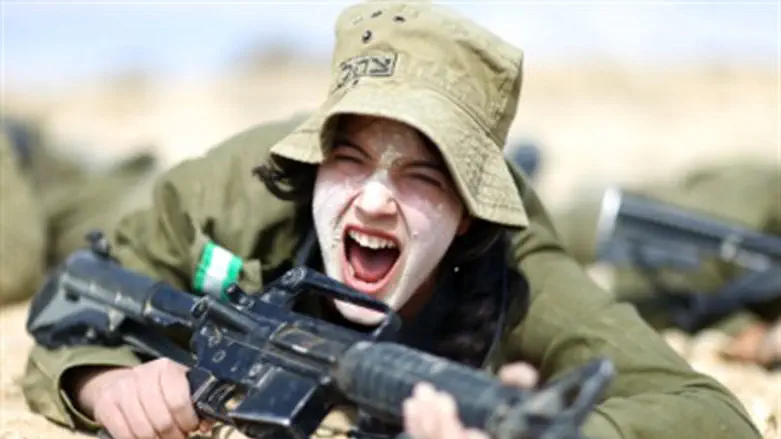
Religious soldiers, in combat units out of all proportion to their percentage of the population, are averse to serving alongside women because of real concerns relating to modesty – a core principle in the Jewish religion, and impossible to preserve in mixed combat units, when facilities are often out in the field.
"The feeling is a harsh one, of humiliation and pain," the soldiers wrote. "We are commanders, combat soldiers; we carry out our work with all our soul and the greatest motivation, and are proud to be part of the Artillery Corps."
The female soldiers noted that they volunteered for an additional year of service and will therefore serve in the IDF for three years, as most men do. They completed the combat training cycle and have been serving alongside about 80 men for two years.
Female combat soldiers are the pride of the Israeli gender feminist movement. Israeli culture places a premium on service in combat units and leaders of the gender feminist movement believe that the presence of women in combat lends greater credence to women's demands in other spheres.
Opponents of female service in combat units note that the number of women who volunteer for such service is small, that the physical requirements for entering the units have to be lowered in order to allow the women in, and that injuries such as stress fractures render a large proportion of the women incapable of service within a relatively short time and other injuries they sustain may harm them for life. Once they are married, they may opt to leave the service, whereas men cannot. Some of these claims are hotly disputed by proponents of women's participation in combat.
In the past, women were rejected from combat units so as to prevent their falling into the hands of the enemy.
The turf war between religious soldiers and female combat soldiers has great political and social significance because the two groups represent competing cultural mindsets.